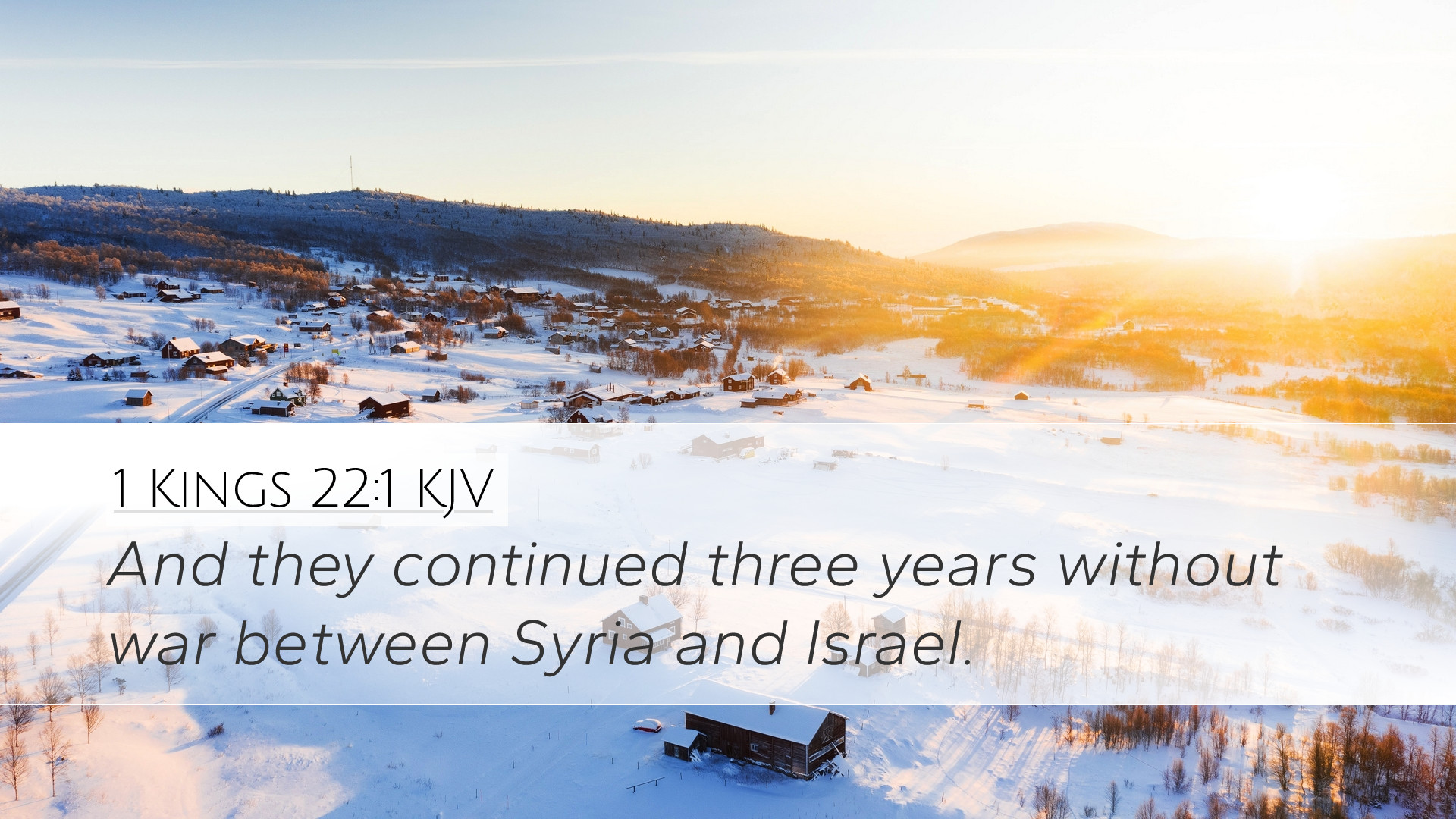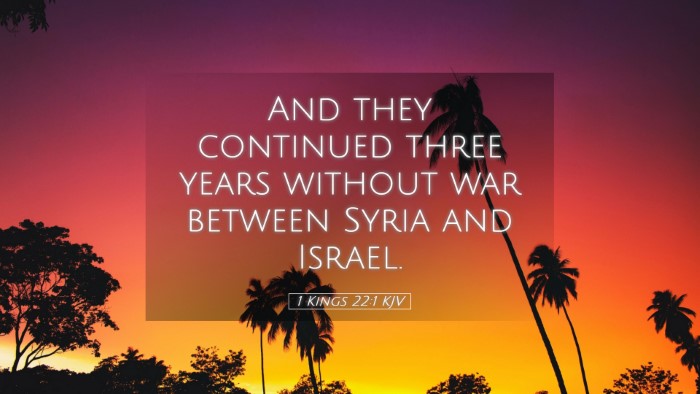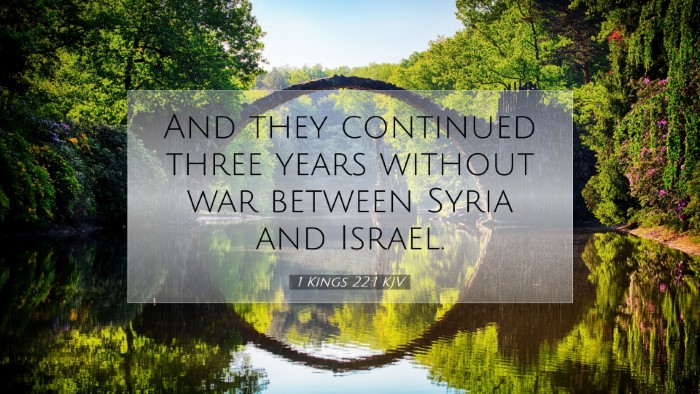Commentary on 1 Kings 22:1
Text of the Verse: “And they continued three years without war between Syria and Israel.”
Introductory Observations
This verse introduces a significant phase in the history of Israel and Judah. It marks a period of relative peace between the two kingdoms - Israel and Syria. This peace is notable considering the ongoing tensions and conflicts that usually characterized their relationships. The long-standing animosity makes this tranquility both surprising and noteworthy.
Historical Context
The relevance of this verse is rooted in its historical context. At the time, Ahab was king of Israel, and he had been engaged in frequent skirmishes and confrontations. The previous chapters depict his reign as tumultuous, embroiled in conflicts often associated with his marriage alliance with Jezebel and the introduction of Baal worship. The cessation of warfare invites reflection on God’s sovereignty and the complexities of human affairs.
Insights from Commentators
Matthew Henry
Henry notes that the absence of war for three years can be viewed as a providential pause allowed by God. In his view, this interval of peace may suggest divine mercy or possible political maneuvering. He points out that such lulls in conflict can often precede significant events and highlights the futility of assuming stability without divine guidance.
Albert Barnes
Barnes elaborates on the geopolitical landscape at this time. He indicates that, although peace was present, it remained fragile. The absence of direct confrontation does not imply any resolution to the underlying issues that existed between countries. Barnes stresses that this situation emphasizes God’s hand in human history, possible diplomatic measures taken during the period, and the consequences of previous engagements which ensured a temporary truce.
Adam Clarke
Clarke provides insight into the implications of this peace for King Ahab and the people of Israel. He suggests that Ahab may have viewed this time as an opportunity to consolidate power and strengthen his kingdom. However, Clarke warns against mistaking peace for righteousness and points to the impending conflict that would soon arise due to Ahab’s poor spiritual choices and the influences surrounding him.
Theological Reflections
This brief verse demonstrates essential theological themes such as God’s sovereignty over nations and the complexities of human engagement in moral and spiritual battles. The cessation of hostilities can be perceived as a blessing or a sign of deeper trouble ahead for the kings and the people involved.
Divine Sovereignty
The sovereignty of God demonstrates that He is ultimately in control of the temporal affairs of man, even during times of peace. The three years without war suggest a moment when God allowed respite which may serve as an opportunity for repentance and reflection, not just for leaders like Ahab but also for the nation as a whole.
Moral Implications
From a moral perspective, scholars indicate that peace can often lead to moral complacency. It can create an environment where the temptations of prosperity drive people away from God. As Ahab would soon find himself embroiled in further conflict, this verse serves as a cautionary note on the dangers of spiritual and moral neglect in times of peace.
Lessons for Today
This passage encourages believers today to seek God in times of peace as earnestly as in times of conflict. Many pastors emphasize the importance of remaining vigilant and spiritually alert, recognizing that spiritual warfare is always present, even when visible tensions are absent.
Conclusion
The brevity of 1 Kings 22:1 belies its depth of meaning. For pastors, students, theologians, and Bible scholars, it opens up avenues for exploration of divine providence, the transient nature of earthly peace, and the need for continuous reliance on God. As reflected in the insights from traditional commentators, understanding the implications of peace is pivotal for spiritual growth and awareness, reminding the faithful to remain anchored in their faith regardless of circumstantial tranquility.


